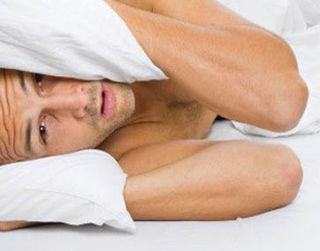Sleep
Restorative Sleep Is Vital to Brain Health
How to heal your brain when you can't sleep.
Posted April 6, 2017
Sleep disorders can be caused by a brain injury, such as a concussion (a mild traumatic brain injury). Many of my clients and patients with brain injuries report that they have issues sleeping. Some have trouble falling asleep. Some have trouble staying asleep. Some have trouble with both falling asleep and staying asleep. And some can sleep the day away. These types of sleep issues can inhibit restorative sleep. Yet, restorative sleep is critical to brain health and healing. Without restorative sleep, symptoms of a traumatic brain injury, whether it is a concussion (mTBI), Moderate, or Severe, will continue.
The two types of sleep, non-rapid eye movement (NREM) sleep, and rapid eye movement (REM) sleep, encompass five stages of sleep that are all crucial for restorative sleep. These five stages are:
1. Light theta wave sleep
2. True light theta sleep
3. Light delta wave sleep
4. Deep slow wave delta sleep
5. Rapid eye movement sleep (REM)
These five stages of sleep must be achieved in order for restorative sleep to occur, in which the brain repairs itself by achieving brain wave regulation and creating needed connections through the brain.
During sleep, the brain is progressing through alternating cycles of light and deep sleep – or sleep stages. These alternating sleep stages allow the brain to heal and restore itself.

I view the process as similar to repairing a bridge, which is the brain in this scenario. To repair a bridge, you need to stop traffic or allow only essential traffic to go by, so the repair work can take place, so, too with the brain. And periodically you need to allow traffic to continue. This would be when dreams would occur. Like the bridge, the brain can be repaired when the traffic has stopped. You need to dream to allow the traffic to flow, yet shut down or slow down the traffic to repair the brain. This is true regardless of a brain injury. Since your brain has been injured, it is imperative that you get restorative sleep.
Dreaming is extremely important. Dreaming provides the integration of the repair work. Some of the most famous inventions and theories have come out of dreaming!
Restorative sleep consists of the completion of all five stages of sleep, and also the chemical changes that occur within a twenty-four-hour period that allow the brain and body systems to be repaired, heal, and grow. The fluctuation from Non-Rem to Rem is called the circadian rhythm, which is the sleep/wake cycle within twenty-four hours.
As the day wears on, we begin to desire rest and sleep. Melatonin, a naturally occurring hormone, helps regulate the sleep/wake cycle by lowering the body temperature and inducing drowsiness. Melatonin affects a small nucleus, the suprachiasmatic nucleus, in the hypothalamus, or upper brain stem.
Why Sleep Problems Can Occur After a Brain Injury
A Brain Injury (concussion, moderate or severe) causes dysregulation within the brain, resulting in sleep disturbance. You may feel extraordinarily tired if your brain injury affects your ability to fall asleep or disrupts your customary sleep/wake cycle. This is a common complaint because sleep patterns are fragile and can easily be affected by injury to the brain. You may notice that in the first four to six weeks following injury, pain and other symptoms may play havoc with two key facets of sleep: sleep initiation (the ability to fall asleep) and sleep maintenance (the ability to stay asleep). Often, people with a traumatic brain injury (concussion) awaken several times each night for no apparent reason. Their sleep patterns may appear inverted because they sleep more during the day and less at night.
Sleep problems may stem from intrinsic sleep disturbances such as pain, problems with sleep apnea, or narcolepsy that was present before the injury but has been worsened by brain trauma. Or you may experience extrinsic sleep disturbances, which are environmental disruptions of sleep patterns due to noise, temperature fluctuations, or other stimuli that you would have been able to ignore in the past.

What Causes Sleep Problems?
As the result of a concussion, the brain becomes dysregulated, thus causing sleep disturbances and sleep deprivation. When an individual is sleep deprived, they are unable to achieve stage five, needed for restorative sleep. Sleep disturbances can cause issues related to memory and thinking, mood problems such as depression and anxiety, chronic fatigue and chronic pain. The two most common types of sleep problems that occur after a concussion are insomnia, the inability to fall asleep or stay asleep, and hypersomnia, the need for excessive amounts of sleep or inability to stay awake. There is also sleep/wake cycle disturbances, an issue regarding a person’s internal clock that regulates periods of sleep and wakefulness, as well as parasomnias, or motor problems such as night terrors, nightmares, and occasional leg kicking.
What is Brain Injury-Related Sleep Like?
For me, prior to my first concussion, I slept soundly for six hours a night and had great dreams. I never woke up during that time and always awakened alert and refreshed. After my first brain injury, a concussion, I would sleep for 19 hours and wake up groggy and disoriented. It would take me almost an hour to get focused. With the use of neurofeedback, cranial electro stimulation (CES), and changes to my diet, my sleep cycle once again provided restorative sleep. That is until I had a subsequent concussion. Each new concussion threw off my sleep cycle again, but I am now able to go to bed at 1:00 a.m. and wake up refreshed at 8:00 a.m. My mother, who sustained three concussions, used to be up all night and sleep all day. However, after I introduced her to a cranial electro stimulation, through use of a CES device, she was able to re-regulate her brain and resume a normal sleep schedule. So too for my middle son, who sustained a brain injury (concussion) from an auto accident. He too had awful sleep problems until I introduced him to both neurofeedback and a CES device.
Restorative Sleep Benefits and Methods
Sleep problems can cause issues with memory, thinking, mood (depression, anxiety) and chronic fatigue/chronic pain. During sleep, the brain is able to repair and grow cells, tissue, and nerves that regenerate and boost the hormone and immune system. Along with good nutrition and stress reduction, restorative sleep is vital for your optimal physical, mental, and emotional health.
CONVENTIONAL TREATMENTS FOR SLEEP PROBLEMS
There are two conventional medical avenues to treat sleep disturbances. The first is behavioral and/or environmental intervention, which includes the following:
- Chronotherapy, or stabilized time of waking. It is important to go to bed and wake up at the same time each day.
- Reduction of or avoidance of caffeine and alcohol.
- Elimination of tobacco.
- Eating a higher protein diet while eliminating sugar, artificial sweeteners, and processed foods.
- Phototherapy, or careful use of and exposure to light.
- Environmental controls such as turning off lights and minimizing background noises.
- Regular exercise; however, do not work out within four hours of your bedtime.
- Limited time in bed by not watching TV in the bedroom.
- Selection of the proper bed, pillow, and mattress for the promotion of restorative sleep.
- Psychotherapy; specifically, Cognitive Behavioral Therapy to learn new cognitive approaches to sleeping and daily living and/or Trauma Therapy to minimize the effect of PTSD.
The second conventional approach to correcting sleep disturbances is pharmacological treatment. The following substances can help if taken on a limited, short-term basis and under your doctor’s supervision:
- Melatonine (Ramelteon): 8 mg at bedtime helps improve total sleep.
- GABA: a neurotransmitter that is helpful in promoting sleep.
- Desyrel (Trazodone) and some other low-dose antidepressants may help sleeping problems, though their side effects may worsen such symptoms as daytime fatigue and memory difficulties.
- Nonbenzodiazepines such as: Zolpidem (Ambien), Zaleplon (Sonata), and Eszopiclone (Lunesta).
- Acetylcholinesterase Inhibitors (Aricept, Reminyl, and Exelon) and wake-promoting agents that increase vigilance while increasing verbal and visuospatial memory.
COMPLEMENTARY TREATMENTS FOR SLEEP PROBLEMS
Acupuncture and Scenar are very effective at correcting many aspects of sleep disturbance, along with changes in your diet.
Neurofeedback is an extremely helpful nonpharmacological approach, which can effectively retrain the brain to have restorative sleep.
Also, the use of a CES device can help with sleep issues. This is an FDA cleared therapeutic method for helping with sleep, anxiety and depression.
Hypnosis is also very effective.
ALTERNATIVE TREATMENTS FOR SLEEP PROBLEMS
Reiki and QiGong are very effective ways to treat sleep disturbances.
Bach Flower Rescue Remedy Sleep may also help. A Bach Flower practitioner can assess whether other remedies, such as Star of Bethlehem, are appropriate for you.
Aroma therapy with lavender or chamomile oil is often used to promote sleep, as are a variety of homeopathic remedies and herbal preparations such as valerian root. It is important to consult with a naturopath or homeopathic practitioner with a background in working with mTBI patients before using any alternative products.
Over-the-counter sleep products are designed for the general population, not as remedies for specific physical conditions or disorders. Before purchasing an over-the-counter product, please consult with your doctor.
Catch Some Zzzzzzz's!
Whether or not you have suffered a brain injury, restorative sleep is important to your overall health. In order for your brain to recover after a concussion/brain injury, it’s crucial that you get enough sleep, and all five stages of sleep. An experienced professional can give you the best information about remedies especially suited to your symptoms and needs.
There is a Way!®
- Dr. Diane
www.drdiane.com
© 2017 Dr. Diane Roberts Stoler, Ed.D.




